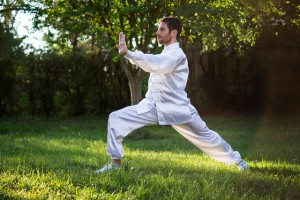
University of Hong Kong’s medical school four year study reveals that Tai chi could improve the survival rate of those with advanced cancer by a year, as well as improve their quality of sleep.
Background
Lung cancer has been the most prevalent cancer and the leading cause of cancer death in Hong Kong since 2019.
Patients with advanced lung cancer often experience sleep disturbances and associated psychological symptoms, which impact their overall survival and quality of life.
Pharmacological interventions can induce side effects that significantly worsen cancer-related symptoms and impact their quality of sleep.
What did the research team do
To address these issues, HKUMed research team explored non-pharmacological interventions, with physical exercise being a promising option due to its safety, affordability, and diverse benefits.
The four-year research, conducted from 2018 to 2022, involved 226 patients with advanced lung cancer who were randomly assigned to one of three groups:
- a self-management control group.
- The tai chi group attended twice a week for 16 weeks
- The aerobics group attended twice a month over the same period, engaging in treadmill walking, stationary bike riding and resistance exercises.
The study assessed multiple factors, including :
- subjective sleep quality,
- objective sleep parameters,
- psychological distress, fatigue, health-related quality of life, physical function, circadian rhythm,
- and one-year survival rates among advanced lung cancer patients.
Assessments were conducted before the intervention classes, at the end of the 16-week intervention, and at week 52.
What did the research team find
The research revealed that both the tai chi and aerobic exercise groups demonstrated a significant improvement in sleep quality, anxiety, depression, cardiorespiratory function, physical function, step count and circadian rhythm.
Tai chi was shown to have superior benefits over aerobic exercise in terms of sleep quality, fatigue reduction and balance.
Research assistant professor Naomi Takemura said: “Tai chi’s emphasis on the mind-body connection offers a holistic approach that goes beyond physical exercise alone. The meditative and mindful aspects of tai chi may help patients cope with psychological distress, reduce anxiety and enhance their overall quality of life and one-year survival rate.”
The study also found a 65-percent lower risk of mortality in tai chi group compared to the control group, suggesting that tai chi may potentially offer better survivability.
Summary
The research has demonstrated remarkable potential of tai chi as a non-pharmacological intervention for improving survival in advanced lung cancer patients.
This study emphasizes the importance of integrating physical activity, particularly tai chi, into the treatment plan to enhance the holistic well-being of this vulnerable population. The study was published in JAMA Oncology.
Next Steps
Check out the Tai Chi & Qigong classes available in your area.



